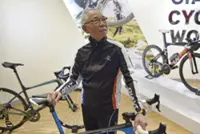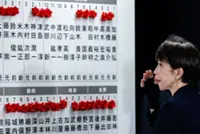PINGTUNG/TAIPEI: Hundreds of women waved their mobile phone flashlights in the air as they swayed to the music and sang along.
Some jumped on chairs to get a better view of the stage. Others shouted “I love you” as they held up their placards higher.





